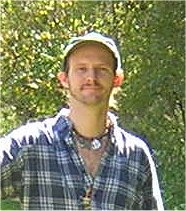Religions are created by people who have had moments of spiritual insight. As they attempt to share their discovery, they describe it as best they can, as it appeared to them.
When they try to share their moment of "mysterium tremendum" -- as William James called it -- they try to define their communion with this Great Mystery. To them, The Divine may have appeared as a single God, consciously ruling the universe. Or they may have seen The Divine as a general force which flows throughout creation. They may have seen the various things working together toward the same aim. Or perhaps they saw an independant spirit at work in every thing. They may have seen everything working together without an apparent consciousness linking it all together. Or perhaps they saw the Divine Mystery working together, but it was unclear to them if there was anything more behind It.
Depending on how the universe appeared to them, they may have believed in monotheism, or pantheism. They may have believed in polytheism, or animism. They may have seen the universe in an atheistic manner, of perhaps an agnostic one. The amazing thing is that these general patterns of religious thought are repeated around the globe. Monotheism, polytheism, pantheism, animism, atheism, and agnosticism can be found in many places throughout the earth. This would seem to indicate that quite a few religious thinkers have observed the same patterns to the universal whole. I believe, therefore, that these patterns are all valid ways of observing the Divinity.
But how can these points of view all be correct? How can God be one and many at the same time? How can God be formed and formless, conscious and unconscious? How can these vastly different beliefs all be true?
In my own personal search for understanding I labored on this for a good deal of time before finding the only logical solution I could find. I reasoned that the universe itself must be a living thing; that it was a large enclosed sytem which functions cooperatively as a life-form. And if, indeed, the universe is the ultimate organism, which we may call "God", or "The Divine", then these points of view can all be valid. Therefore, God is one: the living universal whole. God is many: the many individual parts which make up the whole -- much as the various organs and cells of our own bodies. God is formed: in the physical substances which make up the universe we can observe. And God is formless: what many refer to as the "Web of Life" -- the connection we all share to the greater cosmic whole. The matter of the consciousness of God is a difficult one, as it is most likely on a level which we can not hope to understand.
Understanding "The Divine" as the Living Universe opens up a great many doors of understanding. As we are contained withing the universe -- and indeed we are a part of it -- we are a part of God, just as the cells of our bodies are a part of us. So, wherever we turn we are looking at another part of the Divine Being. And just as the cells in our bodies contain DNA marking them as parts of our selves, so also do we each contain a part of the holiness of the Divinity within us.




